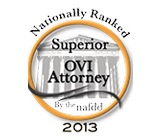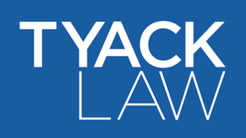
By: James P. Tyack & Jonathan T. Tyack
Originally published in Columbus Bar Association’s May 12, 2017 edition of Legal Connections
Juvenile sexting can lead to serious consequences, including registration as a sex offender and more. As parents, we all must take the time to monitor our kids and their behavior – including what they are doing on their phones and mobile devices.
The best remedy is prevention, which starts with educating our kids about the perils of juvenile sexting. There are many resources in the community available to help: schools, technology safety experts or articles. But if you or your child find yourselves facing these issues, make sure you understand your rights, including the right to have the assistance of a knowledgeable attorney.
Monitoring your child’s activity on mobile devices and computers is an important responsibility. If you discover images on your child’s smartphone or device, know your rights and responsibilities. It is illegal for adults to possess child pornography or nudity oriented materials involving juveniles. While it is unlikely that a parent would be prosecuted for inadvertently or unknowingly coming into possession of child pornography, it is a situation that all parents need to avoid. The other potential issue parents face is the temptation to destroy evidence of a crime. For example, if a parent is aware that an investigation into their child is ongoing and either destroys the images or assists the child in destroying the images, the parent could potentially be prosecuted for tampering with evidence, obstructing justice or assisting their child in doing either.
Parents need to understand their rights and the rights of their children as well. The law is clear that police are not permitted to search a smart phone or device without a warrant in the absence of consent. You can refuse consent to search the phone or device and insist upon a court-ordered search warrant. You can also invoke your right to remain silent. While this is something that many people struggle with when they interact with law enforcement, it may make a difference between whether or not your child is formally charged, found delinquent or forced to deal with other more serious consequences as a result of their own statements.
Disclaimer: The information in this blog post (“post”) is provided for general informational purposes only, and may not reflect the current law in your jurisdiction. No information contained in this post should be construed as legal advice from the Tyack Law Firm Co., L.P.A., or the individual author, nor is it intended to be a substitute for legal counsel or representation on any subject matter. No reader of this post should act or refrain from acting on the basis of any information included in, or accessible through, this post without seeking the appropriate legal or other professional advice on the particular facts and circumstances at issue from a lawyer licensed in the recipient’s state, country, county, or other appropriate licensing jurisdiction.
Talk with an experienced Lawyer today
Fill out the form to get started with your case evaluation.






